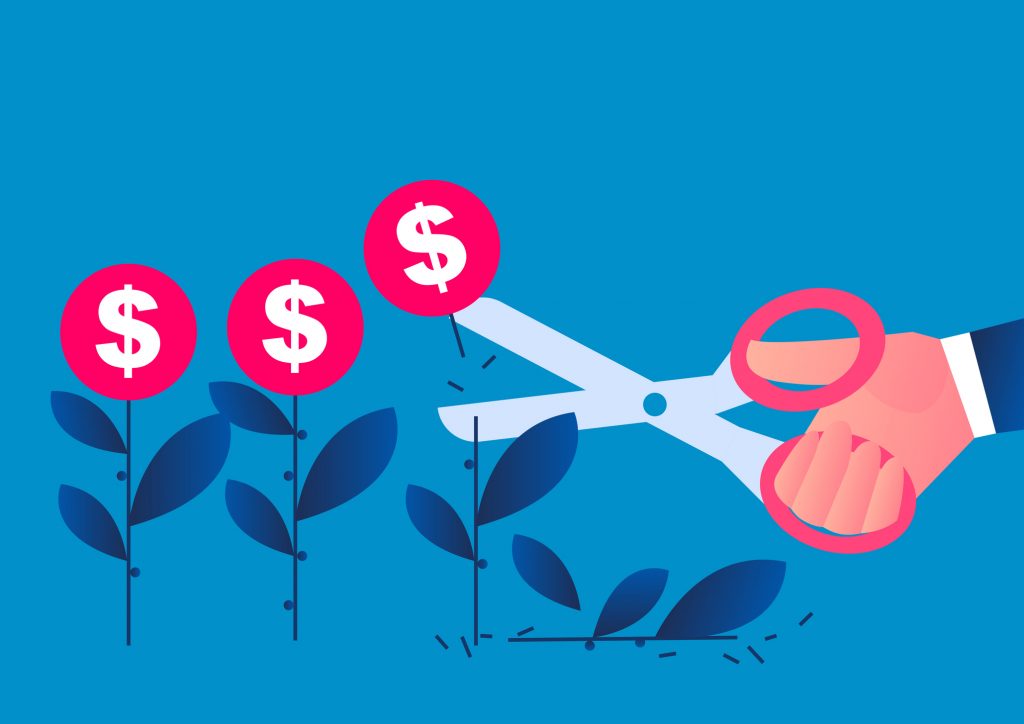Economic downturns, while challenging, present unique opportunities for businesses that are willing to think differently.
While the initial reaction for many companies might be to scale back on marketing expenditures, it’s crucial to recognize the advantages of maintaining or even increasing, marketing efforts during these times. Here’s why:
- Visibility in the Face of Reduced Competition
- Maintaining Share of Voice
- Building Trust with Your Customers
- Opportunities to Grow
- Avoiding the Price-Cutting Spiral
- Reinforcing Brand Loyalty
As many businesses pull back their marketing spend, there’s an opportunity to achieve greater visibility and market share.
When competitors are silent, your voice can resonate louder and clearer.
Warren Buffett, the Oracle of Omaha, once said, “Be fearful when others are greedy and greedy only when others are fearful.” This can be aptly applied to marketing during economic downturns.
When others are conserving resources out of fear, it may be the best time to invest in gaining a larger share of the consumer’s mind.
By continuing your marketing efforts, you maintain your ‘share of voice’ in the market. Cutting back means risking a decline in brand recall, and as marketing expert Peter Field suggests, “There is a very clear link between share of voice and share of market. If you increase your voice share, you will grow.”
Consistency builds trust. By staying active and visible, you reassure customers that your business is strong and here to stay. According to Maya Angelou, “I’ve learned that people will forget what you said, people will forget what you did, but people will never forget how you made them feel.” Continuous presence makes consumers feel secure about your brand.
While others may see a downturn as a setback, visionary businesses see it as an opportunity. As others retreat, there’s room to expand, innovate, and capture new markets. It’s a chance to experiment with new marketing channels, explore collaborations, or even make strategic acquisitions.

Hand holding scissors cuts the cultivated money seedlings, conceptual illustration of economic recession, reduction of global trade orders
While sales and discounts might seem tempting, they’re not always the best approach during a downturn. Cutting prices can devalue your brand, erode profit margins, and create an expectation among consumers for continued discounts. Instead of focusing on price, emphasise the value and benefits of your products or services.
It’s worth noting what Robert H. Waterman Jr. said in his book, ‘In Search of Excellence’: “Do what you do best and do it well.” In other words, focus on your strengths and highlight them. Offering superior value, rather than lower prices, can set you apart.

People coming in the marketing funnel and coming out with brand loyalty
Loyal customers are a brand’s most significant asset, especially during economic downturns. Marketing isn’t just about acquiring new customers; it’s about retaining the current ones.
Through targeted campaigns, you can reward loyalty, encourage repeat business, and foster community around your brand.
Conclusion
Economic downturns are, no doubt, challenging. However, history has shown that businesses that maintain a proactive and adaptive marketing strategy not only survive but thrive. In the face of adversity, the most successful businesses are those that stay committed to their vision, adapt to changing circumstances, and continue to engage their customers in meaningful ways.




